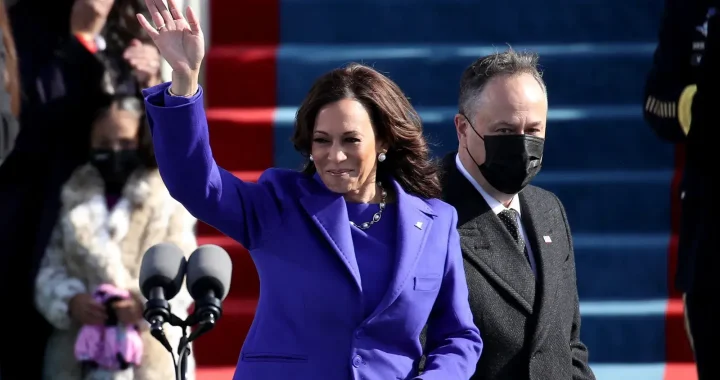Georgia ‘Foreign Agent’ Bill: Chaos Erupts Among Citizens

Georgia 'Foreign Agent' Bill: Chaos Erupts Among Citizens - GlobalCurrent24.com
International News Regarding Georgia’s Bill – Georgia ‘Foreign Agent’ Bill: Chaos Erupts Among Citizens
Georgian riot police used tear gas and water cannons to disperse protesters protesting a measure that the opposition views as a threat to media freedom.
Pro-EU demonstrators battled with police outside parliament, protesting what they regard as a Russian-inspired measure.
Dozens of people were detained, and an opposition leader was injured.
Georgian MPs have given preliminary approval to the “foreign agent” measure, despite the EU’s warning that it might jeopardize Tbilisi’s attempt to join the club.
Parliament is set to vote again on the bill on Wednesday.
Georgia was given EU candidate status in December, and surveys indicate that around 80% of the population supports membership.
Protests against the bill began in mid-April, after the ruling Georgian Dream party proposed legislation that would require non-governmental organizations (NGOs) and independent media to register as “bearing the interests of a foreign power” if they received more than 20% of their funding from foreign donors.
They would also be watched by Georgia’s justice ministry and may be ordered to divulge sensitive information or risk fines of up to 25,000 Georgian lari ($9,400; £7,500).
Opponents claim the regulations are modeled after authoritarian legislation used by neighboring Russia to suppress dissent. Bidzina Ivanishvili, the millionaire founder of the Georgian Dream party, argues that a Western “global war” party is exploiting the country to oppose Russia.
Several protesters were hurt during conflicts on Rustaveli Avenue, outside Tbilisi’s parliament, on Tuesday night.
According to Georgian media, among them was Levan Khabeishvili, chairman of the biggest opposition group, the United National Movement. He shared a photo of his damaged face on social media.
Eyewitnesses accused several police officers of violently assaulting demonstrators. According to officials from the Interior Ministry, six cops were injured, and 63 individuals were detained.
Protesters worry that the planned foreign influence measure would be used to silence critical views ahead of the parliamentary elections later this year.
A similar totalitarian law went into effect in Russia in 2012 and has since been used to marginalize voices critical of the Kremlin, including renowned cultural leaders, media organizations, and civil society groups.
According to Rayhan Demytrie, the BBC’s South Caucasus reporter, many Georgians are concerned that the restrictions may derail the country’s road to EU membership. A number of European politicians have cautioned that the draft measure is “incompatible” with European standards and principles.
The Georgian administration, led by Prime Minister Irakli Kobakhidze, is standing fast.
Mr Kobakhidze has accused non-governmental organizations (NGOs) of attempting to instigate revolutions in Georgia twice, propagating “gay propaganda,” and undermining the Georgian Orthodox church.
The administration says that the measure is about promoting openness and denies the suggestion that it violates European principles or that Russia is behind the legislation.
Bidzina Ivanishvili warned a Georgian Dream gathering on Monday that foreign-funded NGOs posed a threat to Georgian sovereignty and that the opposition UNM will face punishment for crimes against the state following this year’s elections.
Salome Zourabichvili, Georgia’s ceremonial president, called the pro-government demonstration a “Putin-type” event.
Ms Zourabichvili, a prominent opponent of the foreign influence law, has urged the interior ministry to avoid using “disproportionate force” against protesters.
READ ALSO: Brazil Floods In Rio Grande do Sul: Residents Stranded on Rooftops
 Breaking News – Kamala Harris Declares Intention To Run For Presidency
Breaking News – Kamala Harris Declares Intention To Run For Presidency  Obama joins Democrats urging Biden to ‘Reconsider’ Campaign
Obama joins Democrats urging Biden to ‘Reconsider’ Campaign  Eric Trump Demands Answers from Secret Service Director
Eric Trump Demands Answers from Secret Service Director  Europe Should Prepare for President JD Vance
Europe Should Prepare for President JD Vance  Is Anywhere Safe for Paul Kagame’s Critics?
Is Anywhere Safe for Paul Kagame’s Critics?  RNC Address Beef: Amber Rose Fires Back At Joy Reid
RNC Address Beef: Amber Rose Fires Back At Joy Reid  Biography Of Kamala Harris, Her Early Life, And Road To Presidency
Biography Of Kamala Harris, Her Early Life, And Road To Presidency  Top Achievements Of President Joe Biden You Might Have Missed
Top Achievements Of President Joe Biden You Might Have Missed